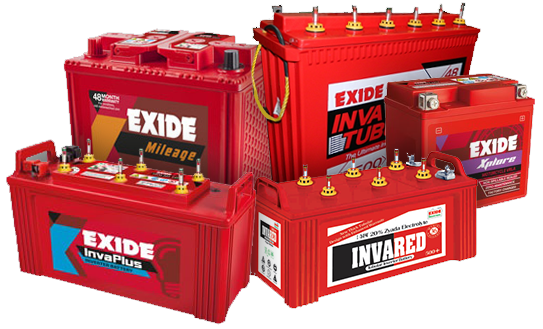
In a world that relies heavily on constant connectivity and seamless power supply, the importance of uninterrupted power systems, or UPS batteries, cannot be overstated. These unsung heroes work quietly behind the scenes, ensuring that our devices remain operational even during power outages or surges. Without them, countless businesses and homes would face significant disruptions, potentially leading to data loss, equipment damage, and a loss of productivity.
While many people may not think twice about the technology that safeguards their electronic devices, the role of UPS batteries is critical. They serve as a reliable backup, providing essential energy in times of need and protecting sensitive equipment from the brink of disaster. As we delve deeper into the world of UPS batteries, we will uncover the intelligence and innovation behind their design, and celebrate the vital role they play in powering resilience in our increasingly digital lives.
Understanding UPS Batteries
UPS batteries, or uninterruptible power supply batteries, are essential components designed to provide backup power during electrical outages. These batteries ensure that sensitive electronics and critical systems continue to operate without interruption. By maintaining power during outages, UPS batteries protect valuable data and prevent equipment damage, making them vital in both residential and commercial settings.
There are various types of UPS batteries available, with lead-acid and lithium-ion being the most common. Lead-acid batteries are widely used due to their cost-effectiveness and reliability, while lithium-ion batteries are gaining popularity for their longer lifespan and higher energy density. Each type serves different applications, and the choice often depends on the specific power needs and budget of the user.
In addition to providing backup power, UPS batteries also play a key role in power conditioning. They help stabilize fluctuations in voltage, ensuring that connected devices receive a consistent and clean power supply. This capability is particularly important for sensitive equipment that can be adversely affected by power surges, sags, or outages. By understanding the functions and types of UPS batteries, users can make informed decisions to enhance their resilience against power disruptions.
Uninterruptible Power System
The Importance of Reliability
In today’s world, where technology is integral to daily operations, the reliability of power sources is paramount. UPS batteries serve as the backbone of power protection systems, ensuring that critical devices continue to operate during outages. The sudden loss of power can lead to data loss, equipment damage, and service interruptions, emphasizing the need for a dependable power backup solution. Without reliable UPS batteries, businesses risk substantial financial losses and damage to their reputations.
The dependable nature of UPS batteries also plays a vital role in maintaining the safety and integrity of information technology systems. Many industries rely heavily on consistent power for uninterrupted service, especially sectors like healthcare, finance, and data management. In these environments, a brief lapse in power can have serious consequences. Reliable UPS batteries not only safeguard data but also provide confidence to organizations that their operations can withstand unexpected power disruptions.
Moreover, the longevity and performance of UPS batteries reflect their inherent reliability. High-quality batteries are engineered to endure frequent cycles of charging and discharging, ensuring they can deliver power when needed most. Regular maintenance and monitoring contribute to this reliability, allowing organizations to anticipate failures before they occur. By investing in reliable UPS battery systems, companies can fortify their resilience against power interruptions, ultimately enhancing their operational stability.
Future Innovations in UPS Technology
As the demand for reliable power solutions escalates, the future of UPS batteries is poised for significant advancements. One area of innovation is the development of lithium-ion batteries, which offer a higher energy density, longer lifespan, and reduced maintenance compared to traditional lead-acid batteries. These improvements not only enhance the performance of UPS systems but also contribute to their compactness, making them ideal for modern data centers and sensitive electronic environments.
Another promising direction is the integration of smart technologies in UPS systems. Smart UPS solutions will provide real-time monitoring and diagnostics, enabling predictive maintenance and reducing downtime. This technology can also optimize energy consumption by controlling how and when power is used, thus improving efficiency and lowering operational costs. With enhanced connectivity features, UPS systems will become essential components of Internet of Things applications, ensuring seamless operation in an interconnected world.
Renewable energy integration is also expected to shape the future of UPS technologies. As more businesses commit to sustainability, hybrid systems that combine UPS batteries with solar and wind power sources will become increasingly prevalent. These systems will not only offer backup power during outages but also allow for energy independence and reduced reliance on the grid. This alignment with green energy initiatives will make UPS batteries not only a key player in enhancing resilience but also in promoting environmental responsibility.


